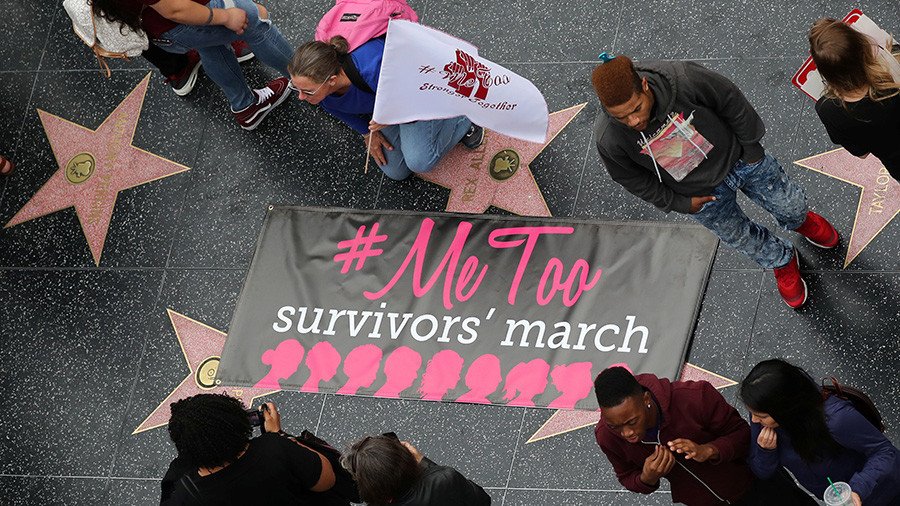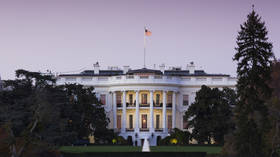Will the new rules of sexuality be like an ashtray with a no-smoking sign?

Women's protests are a great awakening, but with many dangers. It could eventually be a case of rules being made to be broken.
Last week, the American philosopher and gender theorist Judith Butler helped organize an, outwardly straightforward, conference in São Paulo, Brazil. Butler may be well-known for her work on transgenderism, but the title of the event was ‘The Ends of Democracy’ and thus had nothing to do with the topic. Yet, nevertheless, a crowd of right-wing protesters gathered outside the venue where they burned an effigy of Butler while shouting “Queimem a bruxa!” (Portuguese for “Burn the witch!”).
This weird incident is the latest in a long series, which prove that sexual difference is today politicized in two complementary ways: the transgender fluidification of gender identities and the resulting conservative backlash.
Indeed, the famous description of the capitalist dynamics in Karl Marx and Friedrich Engels' Communist Manifesto should be supplemented by the fact that global capitalism has seen sexual "one-sidedness and narrow-mindedness become more and more impossible." And that, also in the domain of sexual practices, "all that is solid melts into air, all that is holy is profaned." Because perhaps capitalism tends to replace the standard normative heterosexuality with a proliferation of unstable shifting identities and/or orientations?
Today’s celebration of “minorities” and “marginals” is the predominant majority position – even alt-rightists who complain about the terror of liberal political correctness present themselves as protectors of an endangered minority. Or take those critics of patriarchy who attack it as if it was still a hegemonic position, ignoring what Marx and Engels wrote more than 150 years ago, in the first chapter of their aforementioned tome: "the bourgeoisie, wherever it has got the upper hand, has put an end to all feudal, patriarchal, idyllic relations.” But this is still ignored by those leftist cultural theorists who focus their critique on patriarchal ideology and practice.
So what should we do with regard to this tension? Shall we limit ourselves to supporting the transgender fluidification of identities while remaining critical of its limitations? There is a third way of contesting the traditional form of gender identities exploding now - with women massively coming out about male sexual violence. That said, all the features of the media coverage of this event should not distract us from what is really going on; and that is nothing less than an epochal change, a great awakening, a new chapter in the history of equality.
Huge shift
Right now, thousands of years of how relations between the sexes were regulated and arranged are questioned and undermined. The protesting movement is now not an LGBT+ minority but a majority, that of women. What is coming out is nothing new – it is something we (vaguely, at least) knew all the time and just were not able (or willing and ready) to openly address: hundreds of ways of exploiting women sexually.
Women are now bringing out the dark underside of our official claims of equality and mutual respect, and what we are discovering is, among other things, how hypocritical and one-sided our fashionable critique of women’s oppression in Muslim countries was (and is): so, we have to confront our own reality of oppression and exploitation.
As in every revolutionary upheaval, there will be numerous “injustices” and "ironies.” For example, I doubt that Louis CK’s acts, deplorable and lewd as they are, could be put on the same level as direct sexual violence. But, again, all this should not distract us; we should instead focus on the problems that lie ahead.
Although some countries are already approaching a new post-patriarchal sexual culture (just look at Iceland, where more than two thirds of children are born out of wedlock, and where women occupy more posts in public power institutions than men), one of the key tasks is, first, the need to explore what we are gaining and losing in this upheaval of our inherited courtship procedures. Because new rules will have to be established so that we will avoid a sterile culture of fear and uncertainty.
Indeed, some intelligent feminists noted long ago that if we try to imagine a wholly politically correct courtship, we get uncannily close to a formal market contract. The problem is that sexuality, power, and violence are much more intimately intertwined than we may expect it so that also elements of what is considered brutality can be sexualized, i.e., libidinally invested – after all, sadism and masochism are forms of sexual activity. As a result, sexuality purified of violence and power games can well end up getting desexualized.
In the aftermath of #Weinstein’s downfall, we at risk of broadening the definition of sexual harassment too widely (Op-Ed by Danielle Ryan) https://t.co/H7LXxv9DoX
— RT (@RT_com) November 8, 2017
New challenges
The next task is to make sure the ongoing explosion will not remain limited to the public lives of the rich and famous but will trickle down and penetrate the daily lives of millions of ordinary ‘invisible’ individuals. And the last (but not least) point is to explore how to link this awakening to the ongoing political and economic struggles, i.e. how to prevent it from being appropriated by Western liberal ideology (and practice) as yet another way to reassert our priority. One has to make an effort that this awakening will not turn into just another case where political legitimization is based on the subject’s victimhood status.
Is the basic characteristic of today's subjectivity not the weird combination of the free subject who themselves as ultimately responsible for their fate and the subject who grounds the authority of his speech on their status as a victim of circumstances beyond their control? Where every contact with another human being is experienced as a potential threat - if the other smokes, if he casts a covetous glance at me, he already hurts me: this logic of victimization is today universalized, reaching well beyond the standard cases of sexual or racist harassment.
Merely recall the growing financial industry of paying damage claims, from the tobacco industry deal in the USA and the financial claims of the Holocaust victims and forced laborers in Nazi Germany, up to the idea that the USA should pay African-Americans hundreds of billions of dollars for all they were deprived of due to their past slavery. This notion of the subject as an irresponsible victim involves the extreme narcissistic perspective from which every encounter with the other appears as a potential threat to the subject's precarious imaginary balance; as such, it is not the opposite, but, rather, the inherent supplement of the liberal free subject. In today's predominant form of individuality, the self-centered assertion of the psychological subject paradoxically overlaps with the perception of oneself as a victim of circumstances.
Two sides
In a hotel in Skopje where I recently stayed, my companion inquired if smoking is permitted in our room. The answer she got from the reception person was unique: “of course not, it is prohibited by the law. But you have ashtrays in the room, so this is not a problem.”
This was not the end of our surprises: when we entered the room, there was effectively a glass ashtray on the table, and on its bottom, there was an image painted, a cigarette over which there was a large circle with a diagonal line across it designating prohibition. So it was not the usual game one encounters in easy-going hotels where they whisper to you discreetly that, although it is officially prohibited, you can do it carefully, standing by an open window or something like that.
Thus, the contradiction (between prohibition and permission) was openly assumed and thereby canceled and treated as non-existent, i.e., the message was: “it’s prohibited, and here it is how you do it.” Back to the ongoing awakening, the danger is that, in a homologous way, the ideology of personal freedom will be effortlessly combined with the logic of victimhood (with freedom silently reduced to the freedom to bring out one’s victimhood), thereby rendering superfluous a radical emancipatory politicization of the awakening, making the women’s fight one in the series of fights – fights again global capitalism and ecological threats, for a different democracy, and against racism, etc.
The statements, views and opinions expressed in this column are solely those of the author and do not necessarily represent those of RT.
















